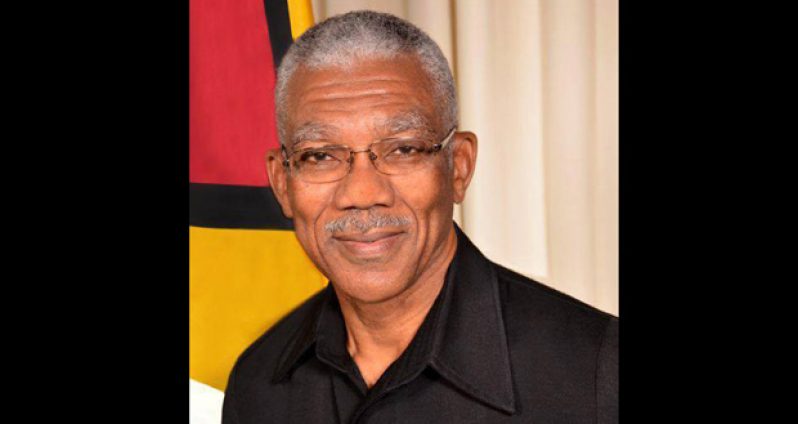Jury still out
–President says Guyana will arrive at a decision ‘in due course’
By Svetlana Marshall
THE issue of abolishing the death penalty has been a sore one in Guyana, but President David Granger has made it clear that he has no intention of approving the execution of any prisoner.According to the President, no concrete decision has been made as yet as to whether government intends to abolish it.
During his weekly Public Interest programme aired on Friday, the President said, “I don’t have any intention of executing anyone…some members feel that the death penalty is a deterrent, some members feel that it is not a deterrent.
“But David Granger doesn’t have any intention of approving the execution of anyone.”
The President further noted, “There is no single statement out of the government on whether it will abolish the death penalty or not. In due course, we will arrive on a position.”
At a reception held in honour of Her Majesty The Queen’s 90th birthday, British High Commissioner Greg Quinn appealed for the death penalty to be abolished in Guyana.
CONTINUOUS CALLS
There have been continuous calls for Guyana to abolish the death penalty. In November 2015, the European Union (EU) called on Caribbean countries to formalise their unofficial moratorium on the punishment.
“I don’t have any intention of executing anyone… Some members feel that the death penalty is a deterrent; some members feel that it is not a deterrent.
“But David Granger doesn’t have any intention of approving the execution of anyone”– President
The EU made the recommendation at the recently concluded Caribbean Regional Conference on the Abolition of the Death Penalty held here in Guyana.
The conference, hosted in collaboration with the International Commission against the Death Penalty, also recommended that countries that still have capital punishment respect international and regional human rights law and standards relating to the death penalty; continued engagement with governments in the Caribbean region as they take steps towards eventual abolition of the death penalty; the strengthening of justice system structures, including ensuring that it is sufficiently resourced, that it has the capacity of effectively investigating crimes, ensuring that victims are supported, ensuring adequate legal assistance to vulnerable sections of society; and advance human rights education as part of the curriculum for citizenship studies.
The conference concluded that there have been and always will be cases of executions of innocent people.
“No matter how developed a justice system is, it will always remain susceptible to human failure. Unlike prison sentences, the death penalty is irreversible and irreparable.
“The death penalty is often used in a disproportional manner against the poor, minorities and members of racial, ethnic, political and religious groups.
“The death penalty violates the right to life, which happens to be the most basic of all human rights. It also violates the right not to be subjected to torture and other cruel, inhumane or degrading treatment or punishment. Furthermore, the death penalty undermines human dignity, which is inherent to every human being,” the EU had said in a statement that includes the recommendation and conclusions of the recently held forum.
It added that the death penalty lacks the deterrent effect, which is commonly referred to by its advocates.
The General Assembly of the United Nations had recently stated: “There is no conclusive evidence of the deterrent value of the death penalty.” (UNGA Resolution 65/206).


.jpg)











